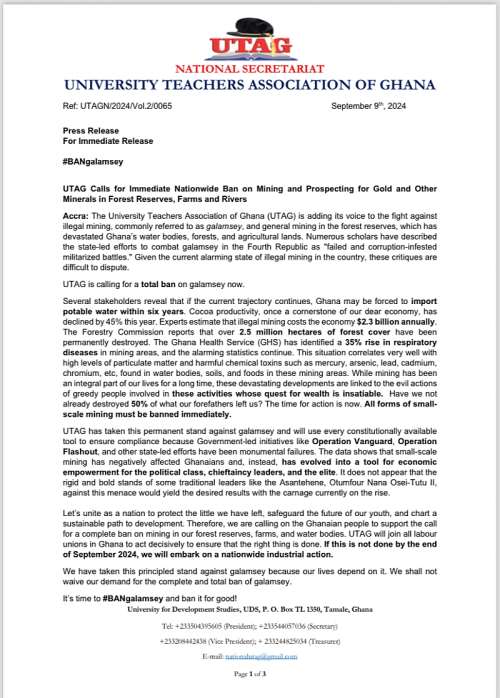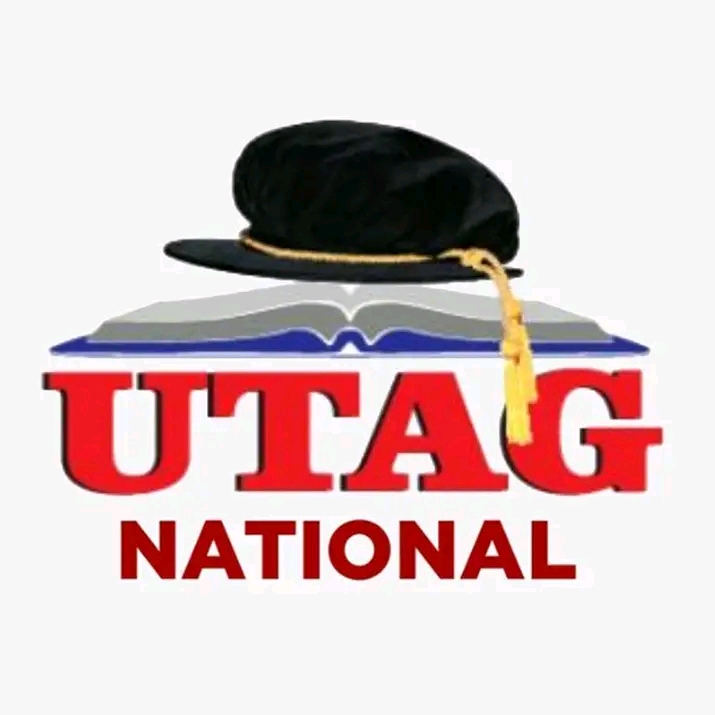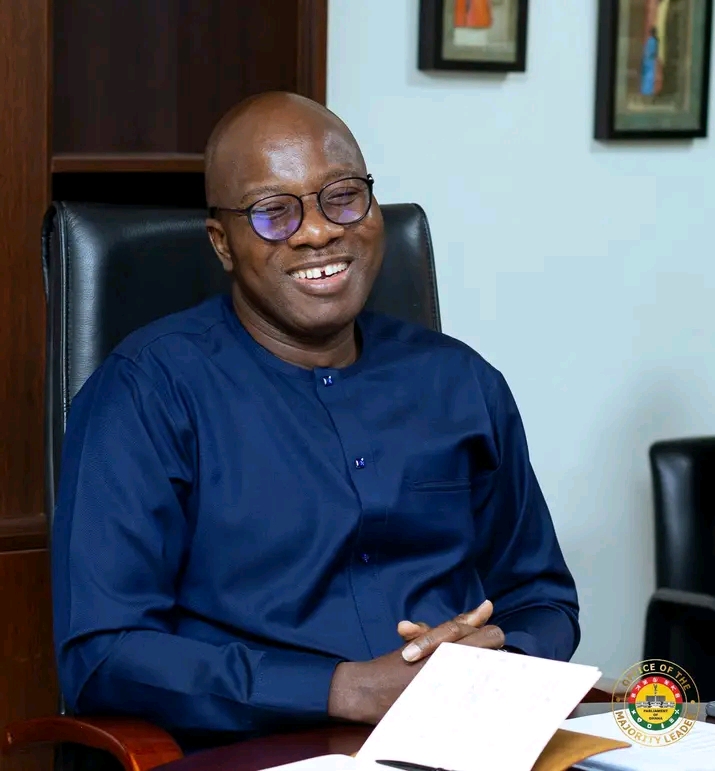By: Kekeli K. Blamey:
The University Teachers Association of Ghana (UTAG) has joined the growing chorus of voices calling for a ban on illegal small-scale mining, commonly known as galamsey, in forest reserves.
The devastating impact of these activities on Ghana’s water bodies, forests, and agricultural lands has sparked widespread concern.
In a press release, UTAG’s National President, Prof. Mamudu A. Akudugu, acknowledged that the government’s efforts to combat galamsey have been criticized as “failed and corruption-infested militarized battles.” Given the alarming state of illegal mining in the country, UTAG finds it hard to refute these critiques.
The statement highlighted the severe consequences of galamsey, which includes:
Ghana may be forced to import potable water within six years due to the destruction of water bodies, Cocoa productivity has declined by 45% this year, Illegal mining costs the economy $2.3 billion annually, The permanent destruction of over 2.5 million hectares of forest cover, A 35% increase in respiratory diseases in mining areas, linked to high levels of particulate matter and toxic chemicals.
UTAG has taken a firm stance against galamsey, calling for an immediate ban on all forms of small-scale mining.
The Association criticized government-led initiatives like Operation Vanguard and Operation Flashout as “monumental failures” that have only served to economically empower the political class, chieftaincy leaders, and the elite.
The statement urged the Ghanaian public to support a complete ban on mining in forest reserves, farmlands, and water bodies. UTAG threatened to embark on a nationwide industrial action by the end of September 2024 if their demands are not met.
“We have taken this principled stand against galamsey because our lives depend on it. We shall not waive our demand for the complete and total ban of galamsey.”







